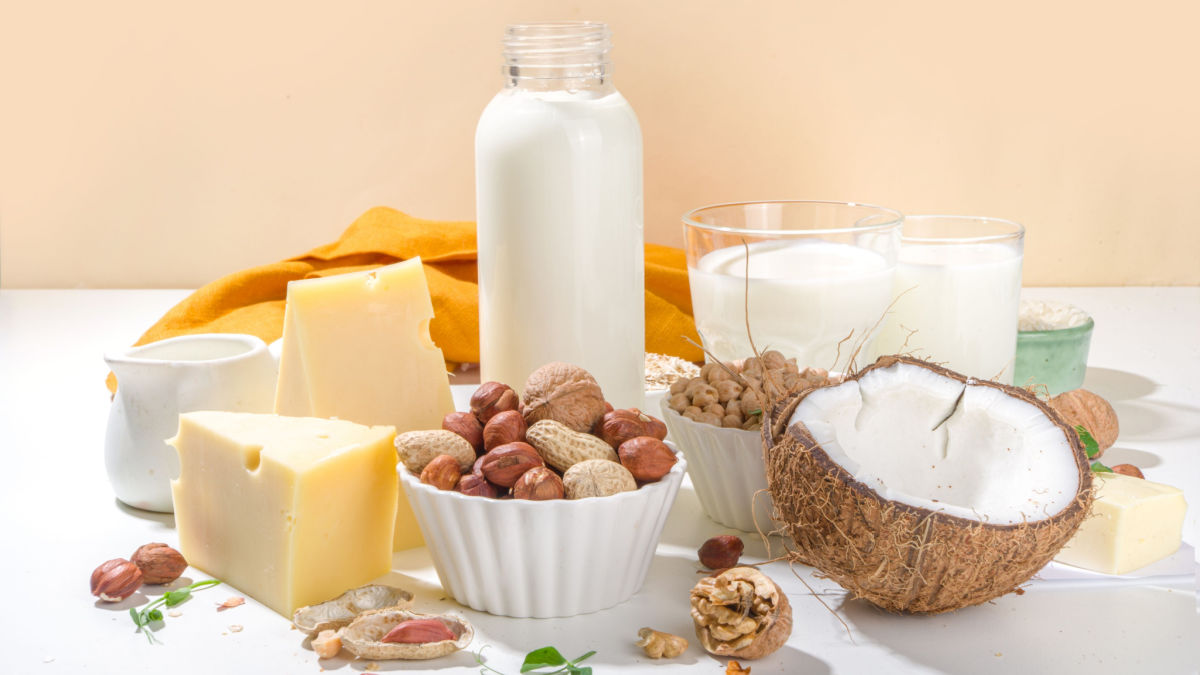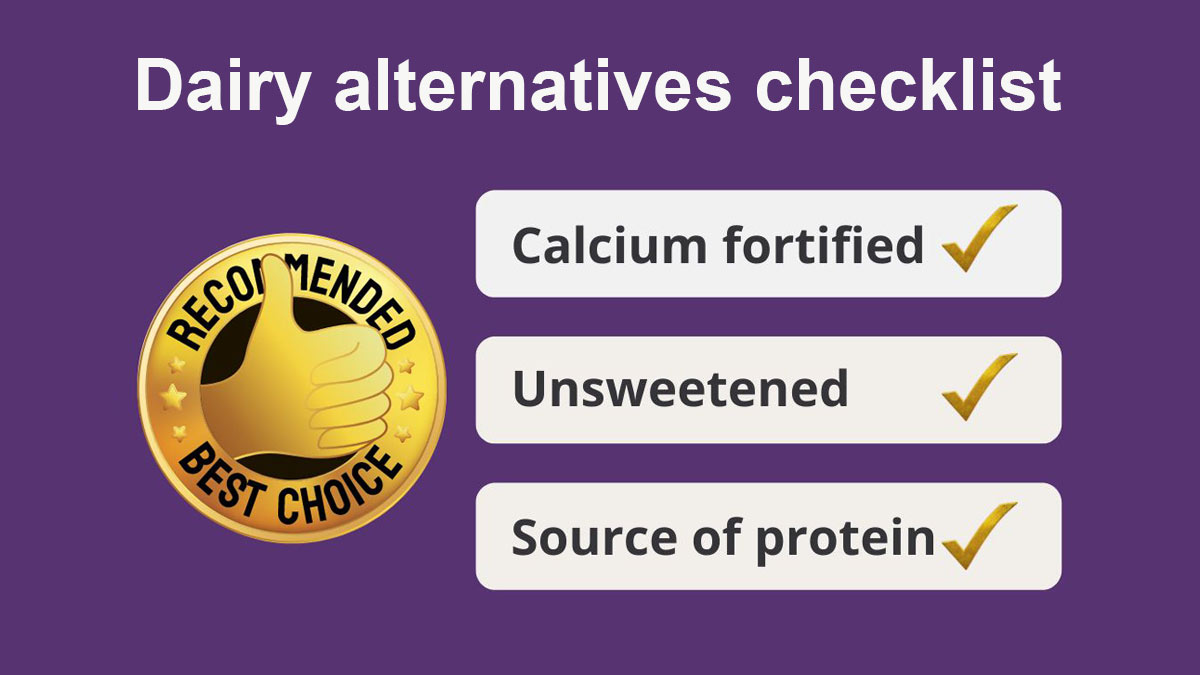How to choose the best alternative to dairy products
To make sure an alternative to a diary product is a healthy equivalent, it’s important to check its nutrition label to make sure it is a good source of protein, is unsweetened and is fortified with calcium.
Over the past few years there has been a huge rise in the number of alternatives to dairy products available in our supermarkets and grocery shops. And many of us are regularly choosing them over dairy products – in fact our research shows that 1 in 3 adults are replacing dairy like milk, cheese and yoghurts with plant-based alternatives like soya, oat, almond and vegetable oil products.
Our research also shows that all dairy alternatives have less protein and there’s less calcium in alternatives to cheese. So it’s important if you buy any dairy alternative to check that they are a source of protein, fortified with calcium and are unsweetened if you want a healthy equivalent.
Plant-based alternatives explained
Our research found over 200 different alternatives to milk, yoghurt and cheese where:
- Alternatives to milk are fluids that look and have the same texture as milk. They are often cereal, legume (seed or pod) or nut-based.
- Alternatives to cheese are made using vegetable proteins. Often they are made from peanut or soybean or from vegetable oils like coconut, soybean or palm oil.
- Alternatives to yoghurt are usually made from plants like legumes or cereals.

Why people choose alternatives to dairy
When asked why they choose alternatives to dairy, 20% of people said they think they are “healthier or better” for them, 18% said they “wanted a change or variety” while 14% choose alternatives because they or a family member have a dairy intolerance.
So are dairy alternatives healthier?
Our research shows that dairy alternatives don’t have the same protein content as dairy products and that alternative cheese products don’t have the same calcium content. It also found that milk and yoghurt alternatives can be sweetened.
Dairy is important because it provides calcium and protein, and other nutrients, which are needed for good health, strong bones and teeth. Adults should have 3 servings each day of milk, yoghurt or cheese, while children should have 5 servings.
If we choose alternatives to dairy, it’s important to be aware they don’t contain the same protein and calcium. This is particularly true if you or a family member is following a vegan or vegetarian diet. So it’s important to check nutrition labels.
Milk normally has 3 to 3.5 grams of protein per 100 ml so when choosing an alternative you should look for a product with similar protein content and one that is fortified with calcium and is unsweetened.

Here’s a check list when buying diary alternatives:
☐ Calcium fortified
☐ Unsweetened
☐ Source of protein
If you would like to read more about plant-based alternatives to dairy, our research Plant-based Dairy Alternatives – products available in supermarkets on the island of Ireland and consumer behaviours and perceptions has lots more information.




